Computing
-
 Paleontology
PaleontologyPlesiosaurs swam like penguins
Computer simulations of plesiosaur swimming motion may resolve long-standing debate on how the marine reptile got around.
-
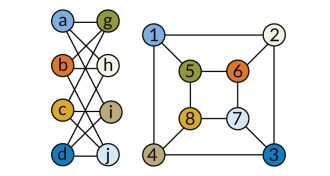 Math
MathYear in review: New algorithm quickly spots identical networks
In what may be a once-in-a-decade advance, a computer scientist claimed to have devised an algorithm that efficiently solves the notorious graph isomorphism problem.
By Andrew Grant -
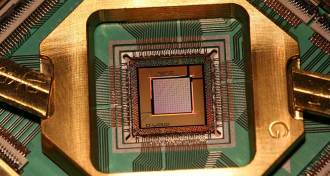 Quantum Physics
Quantum PhysicsGoogle’s quantum computer speeds up, but practical use is unclear
Google’s D-Wave quantum computer is getting faster, but it’s still unclear whether it will ever outperform regular computers at completing useful tasks.
By Andrew Grant -
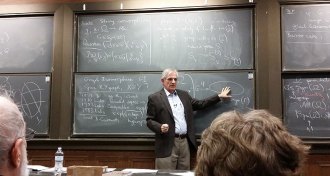 Computing
ComputingNew algorithm cracks graph problem
A new algorithm efficiently solves the graph isomorphism problem, which has puzzled computer scientists for decades.
By Andrew Grant -
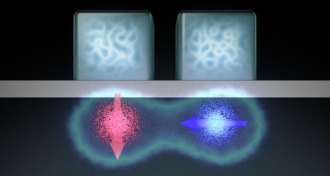 Quantum Physics
Quantum PhysicsFuture quantum computing could exploit old technology
Silicon transistors have been modified and patched together to form logic gates that could perform calculations in future quantum computers.
By Andrew Grant -
 Science & Society
Science & SocietyFor the real hits of fashion week, look to computer science
A machine learning algorithm that analyzes trends on the runway and those on the street could help designers and manufacturers better understand what fashion trends take off.
-
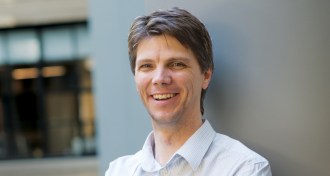 Particle Physics
Particle PhysicsWilliam Detmold: Looking deep into atoms’ hearts
MIT theoretical physicist William Detmold probes the fundamental bits of matter that combine to form the nuclei of atoms.
By Andrew Grant -
 Neuroscience
NeuroscienceYasser Roudi: Creating maps in the brain
Physicist Yasser Roudi does the math on how the brain and other complex systems process information.
By Susan Gaidos -
 Climate
ClimateVirtual twister reveals possible source of tornado longevity
First computer simulation of a long-lived EF5 tornado may reveal why some twisters stick around.
-
 Science & Society
Science & SocietyA bot, not a Kardashian, probably wrote that e-cig tweet
Some 80 percent of recent e-cigarette-related tweets were promotional in nature, raising concerns that the positive spin is targeting a young audience.
-
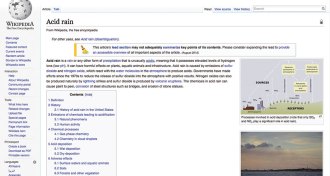 Science & Society
Science & SocietyContentious science topics on Wikipedia subject to editing mischief
Global warming and other politically charged issues are prime targets for sabotage on Wikipedia.
By Meghan Rosen -
 Science & Society
Science & SocietyA few key signs betray betrayal
Like many relationships that collapse after betrayal, teasing out what goes wrong and who is at fault in betrayal isn’t so easy.